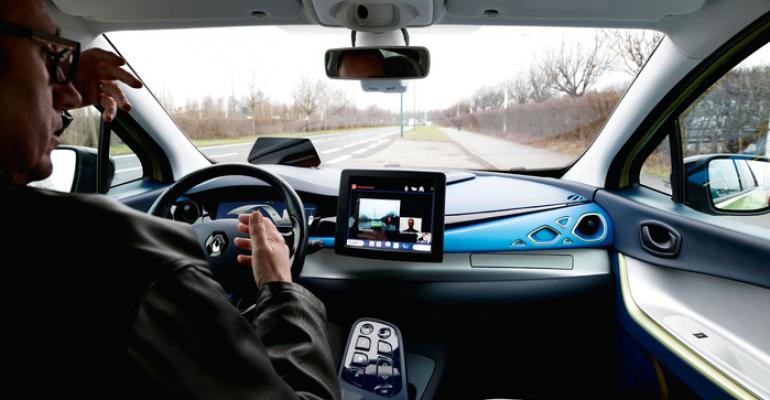The U.K.’s biggest auto insurers are mulling turning their industry upside down by shifting liability for accidents from drivers to automakers as a result of the arrival of driverless cars.
Automated Driving Insurer Group, including 11 U.K. insurers and led by the Association of British Insurers and Thatcham Research, the insurance industry’s research arm, has formed a group to consider issues relating to automated driving, particularly concerning insurance and liability.
The group will feed into ABI policy and work with the government on shaping the future of automated-vehicle use in the region.
It already has studied who could be held liable after an accident: drivers, automakers, system developers, car dealers, car-maintenance firms or a combination.
Other issues include how to cope with vehicles at different levels of automation; how data from individual vehicles will be recorded and used to improve safety and clarify liability; whether changes to existing road-traffic laws are needed; and what those changes might be.
ABI says with 94% of road accidents caused by human error, the development of increasingly automated vehicles has huge implications for road safety.
ABI Director of General Insurance Policy James Dalton says the presence of driverless cars on U.K. roads would be life-changing in many ways, and one of the business sectors likely to be most affected is insurance.
“Contrary to what some people might expect, insurers are not standing in the way of this development but actively looking to support progress and innovation,” Dalton says in a statement.
“The developments we’ve seen towards increasingly autonomous vehicles are already reaping rewards – with autonomous emergency braking reducing collisions and injuries and helping to bring down insurance premiums.”
Safety First
Dalton says truly driverless cars have the potential to dramatically reduce deaths and injuries on the roads. “The role of motor insurance in such a future will be very different to what it is today, but insurance will be part of the picture,” he says.
Thatcham Research CEO Peter Shaw says safety is paramount for both drivers and insurers.
“Working with car manufacturers and insurers, we’ll be researching and testing systems, to provide insight and evaluation of the potential risks and benefits at each step of the way towards a world where cars can drive themselves,” he says in a statement.
The London Telegraph reports driverless cars are expected to dramatically reduce accidents, cutting insurance premiums up to 80% in 25 years’ time.
“They could also shift liability for accidents from drivers to vehicle manufacturers, meaning a complete restructuring of how the industry operates,” the newspaper says.
“Insurers could also find themselves dealing with vehicle manufacturers, rather than drivers, as responsibility for accidents moves to those who have designed driverless-car technology, forcing them to re-evaluate their business models.”
The U.K. government says it will amend traffic laws by 2018 to account for the rise of driverless or semi-autonomous cars.
The newspaper says among the changes, the law could allow for automakers to be held liable for damage and injury, meaning the companies would have to take out insurance policies.





